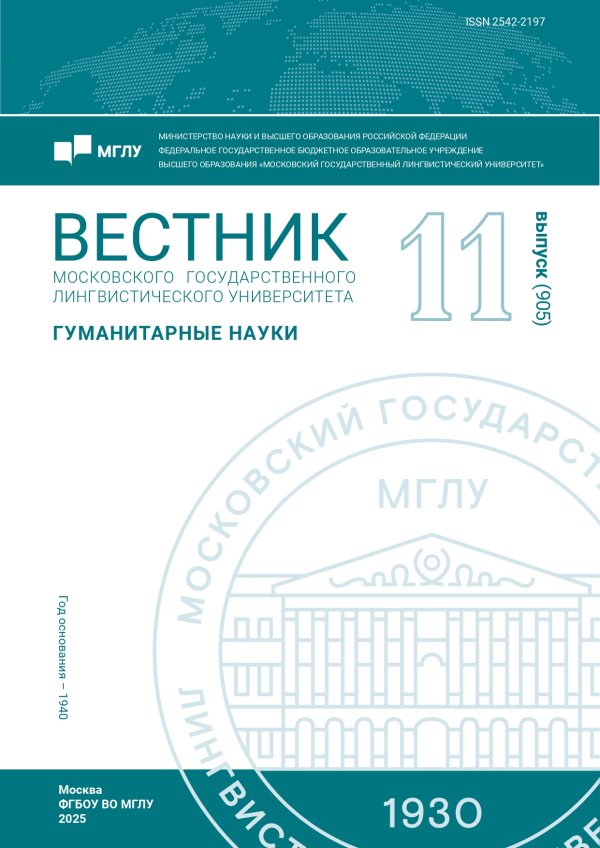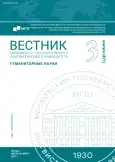Релевантность и салиентность компонентов значения слова в зеркале деривационных процессов: к методологии исследования
- Авторы: Будникова Е.И.1
-
Учреждения:
- Минский государственный лингвистический университет
- Выпуск: № 3(871) (2023)
- Страницы: 30-38
- Раздел: Языкознание
- URL: https://journal-vniispk.ru/2542-2197/article/view/352015
- ID: 352015
Цитировать
Полный текст
Аннотация
В статье обосновывается и апробируется методика выявления релевантных и салиентных типов семантических компонентов в структуре лексического значения с опорой на деривационные данные. На основании анализа семантических, морфологических и синтаксических производных английской единицы sand (песок) в структуре ее значения выявлены релевантные и салиентные компоненты и сопоставлены с семантическими признаками, зафиксированными в лексикографических описаниях.
Ключевые слова
Об авторах
Елена Игоревна Будникова
Минский государственный лингвистический университет
Автор, ответственный за переписку.
Email: geronimo1981@mail.ru
кандидат филологических наук, доцент, доцент кафедры стилистики английского языка
БелоруссияСписок литературы
- Никитин М. В. Курс лингвистической семантики. СПб.: Изд-во РГПУ им. А. И. Герцена, 2007.
- Sloman S. A., Love B. C., Ahn W.-K. Feature centrality and conceptual coherence // Cognitive Science. 1998. Vol. 22, Issue 2. P. 189–228.
- Keil F., Kim N. S., Greif M. L. Categories and levels of information // Category specificity in brain and mind / ed. by M. E. Forde. Hove, GBR: Psychology Press, 2002. P. 375–401.
- Keil F. The acquisition of natural kinds and artifact terms // Language learning and concept acquisition / ed. by W. Demopolous and M. Marras. Norwood: Praeger, 1986. P. 133–153.
- Croft W., Cruse D. A. Cognitive linguistics. Cambridge: Cambridge University Press, 2004.
- Ahn W.-K. [et al.] Causal status as a determinant of feature centrality // Cognitive Psychology. 2000. № 41. P. 361–416.
- Langacker R. W. Foundations of cognitive grammar: theoretical prerequisites. Stanford: Stanford University Press, 1987.
- Pattabhiraman T. Aspects of salience in natural language generation: a thesis … doctor of philosophy in the school of computing science. Vancouver, 1992.
- Харитончик З. А. Салиентность и релевантность знания как факторы деривационной активности лексических единиц // Когнитивные исследования языка. 2019. № 36. С. 432–442.
- Бирих А. Метонимия в современном русском языке. Семантический и грамматический аспекты // Slavistische Beitrage. 1995. Band 326.
- Кубрякова Е. С. Типы языковых значений: семантика производного слова. М.: Наука, 1981.
- Сидоренко М. Н. Метафорические модели в системно-функциональном аспекте: дис. … канд. филол. наук. Минск, 2012.
- Тур В. В. Тождество и отдельность лексического значения (на примере семантики английской лексемы tail «хвост») // Журнал Белорусского государственного университета. Филология. №2. 2020. С. 52–63.
- Тур В. В. Актуализация латентных признаков в семантике компонентов сочетаний «существительное + существительное» в современном английском языке: дис. … канд. филол. наук. Минск, 2015.
Дополнительные файлы











